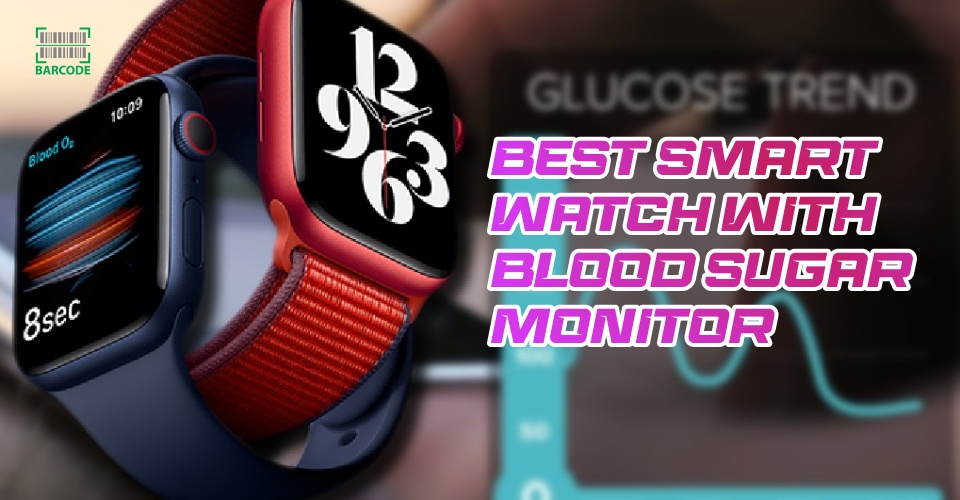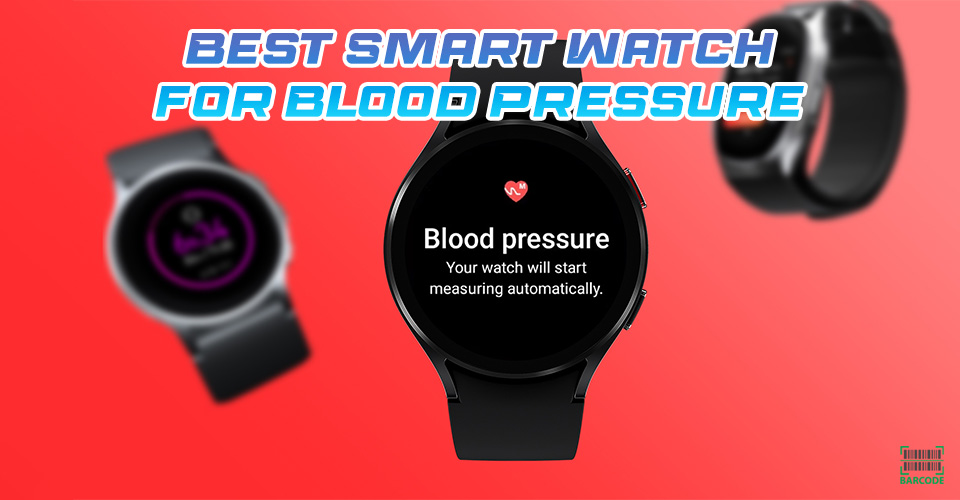Apple Watch for AFib: Track Atrial Fibrillation Anywhere, Anytime
Apart from its fashionable design and compatibility with other Apple products, the Apple Watch has gained popularity as it may encourage users to take better care of their heart health.
Detecting abnormal cardiac rhythms, which may point to atrial fibrillation (AFib), a common heart condition with potentially dangerous implications, is one of its features.
However, what is Apple Watch AFib accuracy? What is the best Apple Watch for AFib? Is there an Apple Watch AFib app?
Read this blog article to learn more!
.jpg) Apple Watch AFib explained
Apple Watch AFib explained
Does Apple Watch Detect AFib?
Millions of Americans suffer from AFib, a chronic cardiac condition that mostly affects those over 65.
Among the most prevalent irregular heart rhythms, AFib is identified by a rapid heartbeat, exhaustion, palpitations, chest discomfort, and shortness of breath.
Any changes in your health should be noted, and if they persist, you should speak with your doctor.
.jpg)
Can Apple Watch detect AFib?
With its irregular rhythm notifications function, the Apple Watch can identify abnormal heart rhythms, like AFib.
So how often does Apple Watch check for AFib?
Usually, during the user's idle time, this function regularly checks the user's heartbeat for irregularities that might indicate a heart rhythm disorder.
If further symptoms appear, it's imperative to seek professional medical attention.
The reason is that the Apple Watch cannot take the place of expert medical advice, even when the alert suggests a probable abnormal rhythm.
Read more: Apple Watch for pregnancy
How Does Apple Watch Detect AFib?
Your heart rate and abnormal rhythms may be monitored by measuring variations in blood volume in the tissue's microvascular bed using a non-invasive optical method called Photoplethysmography (PPG).
.jpg)
How Apple Watch and AFib work
This technology is used by the Apple Watch to:
-
Calculate the quantity of light reflected from the wrist's blood vessels
-
Analyze the data to find any anomalies in the user's heart rate
-
Recognize abnormal rhythms like AFib
If you are unsure how to track Apple Watch AFib history, this video is a good source of information:
How Accurate Is Apple Watch for AFib?
Research on the AFib Apple Watch accuracy has yielded inconsistent findings. Continue reading!
Apple Heart Study Findings
The accuracy of Apple Watch for AFib was the main emphasis of the 8-month Apple Heart Study, which included 419,297 participants.
.jpg)
How accurate is Apple Watch for atrial fibrillation?
The study's findings were as follows:
-
The positive predictive value was 0.84 among those informed of an irregular pulse
-
The algorithm classified electrocardiograms as having sinus rhythm, AFib, or inconclusive performance with a sensitivity of >98% and a specificity of >99%
-
A 6% unreadability rate
According to these findings, the Apple Watch with AFib monitor is a useful tool.
Still, it is not always accurate and needs to be used in conjunction with other diagnostic techniques.
The differences in sensitivity across trials suggest that before the public adopts this technology for AFib detection, more validation is required.
Apple Watch AFib False Positive & Risks
False positives are results from tests that mistakenly indicate the presence of a condition when none is there.
Having said that, an Apple Watch AFib false positive might lead to needless testing and treatments, as well as heightened worry in the user.
.jpg)
Apple Watch false AFib and potential risks
These possible risks highlight the necessity of seeing a medical expert for an accurate diagnosis, evaluation, and treatment of AFib.
Users should be informed of potential risks and limitations associated with using the Apple Watch for medical reasons, since the Apple Watch AFib detection accuracy is currently being evaluated.
In all, it is essential to speak with a healthcare provider before making any decisions based on information from an Apple Watch.
Best Apple Watch for AFib
To help you answer the question of which Apple Watch is best for detecting AFib, we have compiled a list of products with detailed information and the best deals on Amazon.
Check them out now!
|
Apple Watch 4: Best budget |
|
View on Amazon |
|
Apple Watch 5: Best selling |
|
View on Amazon |
|
Apple Watch 6: Premium pick |
|
View on Amazon |
|
Apple Watch 9: Trending |
|
View on Amazon |
Apple Watch Series 4
The ECG app, which may identify AFib, was first available with the Apple Watch Series 4.
Furthermore, it has a feature that notifies users of abnormal cardiac rhythms, which may indicate the possibility of AFib.
In fact, fall detection is also included in Apple Watch Series 4 and later models, enabling medical professionals to contact you more quickly in the event of a serious fall.
.jpg)
Apple Watch Series 4
Apple Watch Series 5
An ECG app that can identify AFib on Apple Watch Series 5 and later models is also available.
To provide a more thorough monitoring experience, the Apple Watch has added notifications for an irregular heartbeat and a low heart rate.
.jpg)
Apple Watch Series 5
Apple Watch Series 6
This is an Apple Watch for heart monitoring and it brings in more functionality for health tracking.
It adds a blood oxygen monitoring feature in addition to the low heart rate and abnormal heart rhythm alerting functions.
The Apple Watch Series 6 is a great option for people who wish to closely monitor their heart health and efficiently control AFib thanks to this new capability.
.jpg)
Apple Watch Series 6
Apple Watch Series 9
The ECG app and abnormal rhythm notification function for AFib detection are still available on the Apple Watch Series 9.
Along with its smooth interaction with the Apple Health app, it also has a blood oxygen meter.
Together, they offer an additional level of understanding of the user's general health.
.jpg)
Apple Watch Series 9
Alternatives to Apple Watch that Detects AFib
There are now many smart watches on the market that include an ECG function that can identify AFib, and more are on the way.
These are some alternatives to the AFib Apple Watch that are available.
|
Samsung Galaxy Watch 5 |
Fitbit Sense Advanced Health |
Fitbit Charge 5 |
|
|
|
|
 |
 |
 |
Conclusion
Smart watches and other wearable technology are rapidly growing within the field of "HealthTech." They now have the potential to help patients with atrial fibrillation and other cardiac disorders in several ways. Wristwatches with built-in ECG monitoring, such as the Apple Watch, can be very helpful for those with Atrial Fibrillation in monitoring their heart rate and rhythm. We hope that our article about the Apple Watch for AFib was useful to you!
.jpg)
.jpg)
.jpg)
.jpg)
.jpg)
.jpg)
.jpg)



.jpg)
9 Comments
Lorenzo Wagoner
Every bit of this guide is just amazing. Thanks for creating this.
Leave a Comment
Your email address will not be published. Required fields are marked *Amanda Lowe
Is apple watch able to collect and store heart parameters with absent Bluetooth connection to an iPhone?
Leave a Comment
Your email address will not be published. Required fields are marked *Barcodelive
Yes. The Apple Watch will collect heart rate data and then sync it to the iPone when it is connected later. It also will track workouts and sync (with HR data) later.
Leave a Comment
Your email address will not be published. Required fields are marked *Lindsey Little
Can Apple Watch distinguish between AFib and SVT?
Leave a Comment
Your email address will not be published. Required fields are marked *Barcodelive
Although smartwatches are commonly used to detect patients with atrial fibrillation, there is no consensus on their efficiency in detecting supraventricular tachycardias (SVT).
Leave a Comment
Your email address will not be published. Required fields are marked *Lillie Walsh
Your article is full of information. But one question: Can an Apple Watch detect V fib?
Leave a Comment
Your email address will not be published. Required fields are marked *Barcodelive
Apple watch is only able to detect A-fib.
Leave a Comment
Your email address will not be published. Required fields are marked *Alaia Mckinney
Does Apple Watch really detect AFib?
Leave a Comment
Your email address will not be published. Required fields are marked *Barcodelive
With watchOS 5.1. 2 or later, Apple Watch Series 1 and later are able to use PPG signals combined with an algorithm to identify periods of irregular pulse suggestive of AFib.
Leave a Comment
Your email address will not be published. Required fields are marked *Leave a Comment
Your email address will not be published. Required fields are marked *